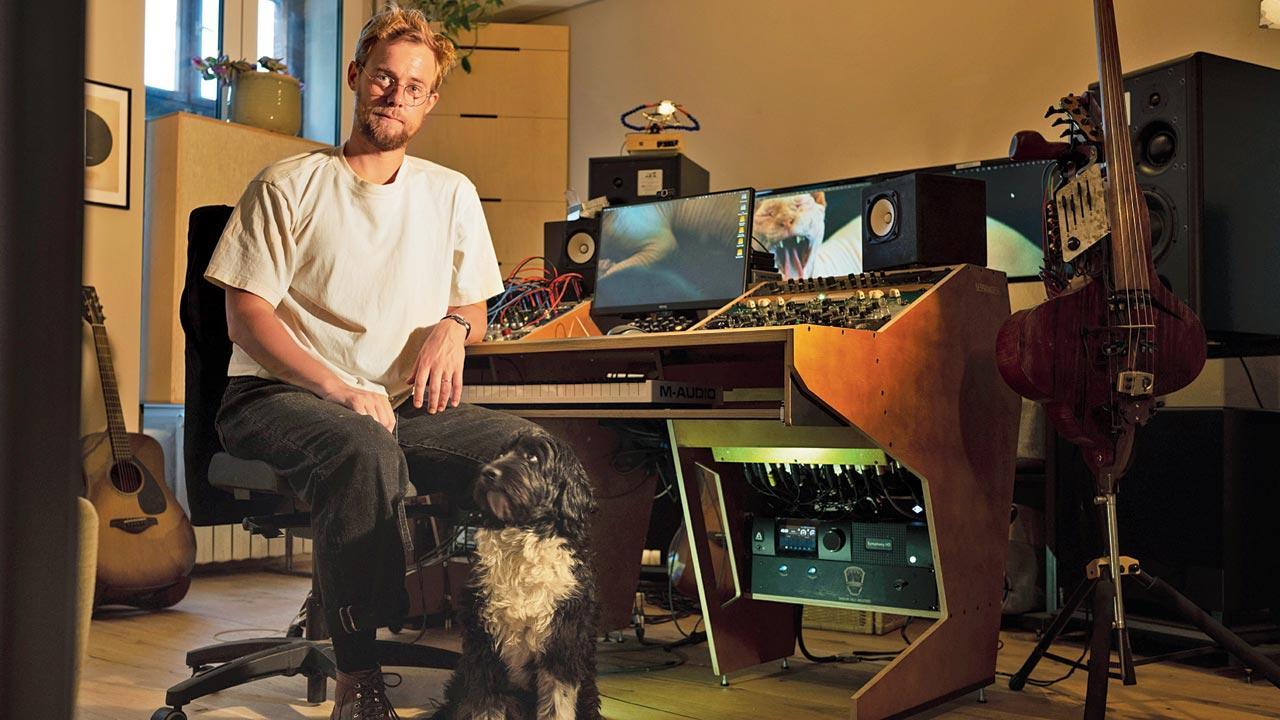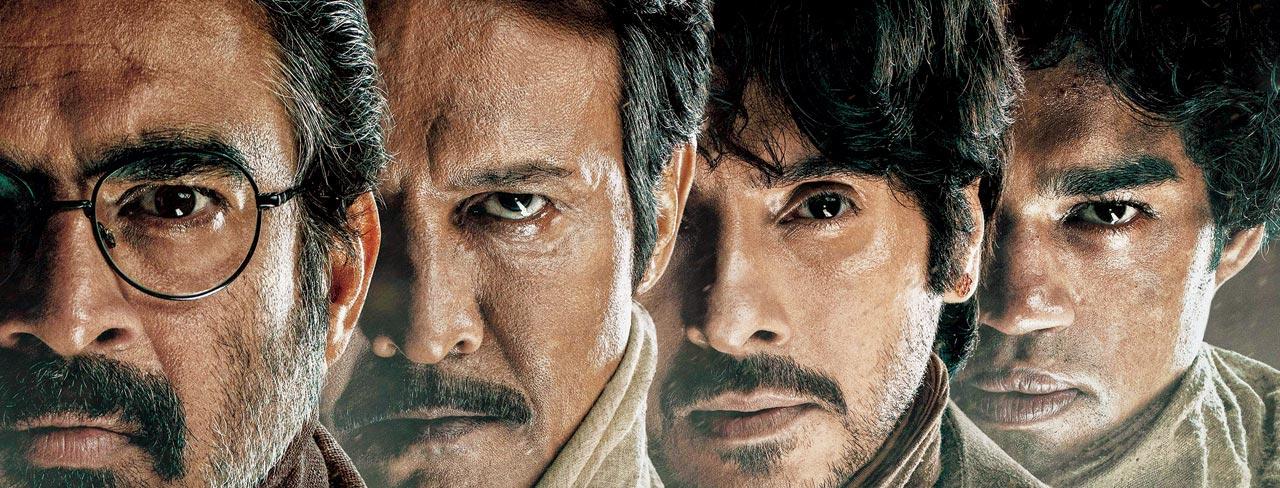Sam Slater chats with mid-day about the music he composed for The Railway Men, his love for Sikkim’s tomato curry, and how honesty defines his compositions

Slater is known for his background scores in the OTT show Chernobyl and the movie Joker. Pic/Camille Blake
Ask British composer Sam Slater what composing music for a film or series involves and he introduces us to the concept of a sound world. Slater, a two-time Grammy award winner who’s known for his background scores in the documentary Chernobyl and the movie Joker, says that coming up with a musical theme for a series involves “staying true to its history”.
ADVERTISEMENT
“I really like stories which have purpose—not just entertainment value,” Slater emphasises, talking about the reason why he picked up this project. “There’s a lot of power that cinema holds, and I like to contribute to narratives that have meaning.”
The Railway Men is based on the 1984 Bhopal gas tragedy that claimed nearly 20,000 lives. It was challenging to compose music for this project, he says, not just because it was the first Indian series he worked on, but also because of its scale. “When there’s a truth in the story, the music has to reflect that. It’s not just about a layer of sound [to complement the visuals], it’s about the truth about the real lives of people.” He had to re-contemplate the scale of the tragedy, although he’d read about it in the past through news reports chronicling the disaster.
 The Railway Men is based on the 1984 Bhopal gas tragedy that claimed nearly 20,000 lives
The Railway Men is based on the 1984 Bhopal gas tragedy that claimed nearly 20,000 lives
The process of composing the background music and score, which usually is completed in six weeks on an average, took four months for this series. Why? “A whole film is about 40 to 50 minutes of music. For these episodes, we made about 50 minutes of finished music per episode. It’s like four films in one.”
The work seems to have paid off, as The Railway Men is currently trending in the Netflix Top 10 lists, globally and in India.
The sound board for The Railway Men involved many elements of railway stations, of course, and recordings of trains plying incorporated into the rhythm of the songs. Slater, who is a drummer at heart and enjoys playing percussion instruments, used a large drum with a loudspeaker hidden inside it to create heavy feedback and “growls”. “I throw sounds at the screen and see what sticks,” he explains. “I rely on intuition on what sounds support the image on screen. It’s all a process of playing around.”
He loves working on non-fiction stories because it gives him a chance to learn more about the different versions of history that are put out there. “I love how Shiv [the director] told the story in a way that’s very personal to him. He threaded a hopeful story through the disaster and tragedy that the real accident was. That was a hard thing to pull off, and I learnt a lot from him about telling stories of hope in sad situations.” It was also fun collaborating with the team: “I think we’re friends now,” he says, sounding hopeful.
Talking about his past projects like the Joker or Chernobyl, Slater says he dealt mostly with sound world-building, while wife Hildur Guðnadóttir, the Icelandic composer, cellist and singer, worked on actually composing the scores. “She’s been my long-term collaborator for these projects, and eventually became my life partner. We enjoyed collaborating so much that we married each other,” he laughs.
Sound worlds, for him, are unique and bespoke auditory elements, corresponding intimately to the character and the contexts of the stories they’re created for. “It’s so easy in 2023 to just grab some dark sounds off the Internet, or buy a library of cinematic sounds, and put them to work,” he muses. “But when you take the time to really become friends with the characters, who are in need of a friend, you create sounds and melodies that represent the story as honestly as possible.”
And what was his experience working on his first Indian project like? “So good,” he smiles broadly. “It was great.” He’s visited India several times in the past, and loves Sikkim’s tomato curry and Kashmir in particular—and anything to do with idlis. “I wanted to bring my wife here for a honeymoon—we haven’t managed to do that yet!” he signs off.
 Subscribe today by clicking the link and stay updated with the latest news!" Click here!
Subscribe today by clicking the link and stay updated with the latest news!" Click here!







